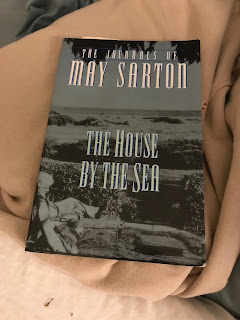Gravelley Run
I don't know somehow it seems sufficient
to see and hear whatever coming and going is,
losing the self to the victory
of stones and trees,
of bending sandpit lakes, crescent
round groves of dwarf pine:
for it is not so much to know the self
as to know it as it is known
by galaxy and cedar cone,
as if birth had never found it
and death could never end it:
the swamp's slow water comes
down Gravelly Run fanning the long
stone-held algal
hair and narrowing roils between
the shoulders of the highway bridge:
holly grows on the banks in the woods there,
and the cedars' gothic-clustered
spires could make
green religion in winter bones:
so I look and reflect, but the air's glass
jail seals each thing in its entity:
no use to make any philosophies here:
I see no
god in the holly, hear no song from
the snowbroken weeds: Hegel is not the winter
yellow in the pines: the sunlight has never
heard of trees: surrendered self among
unwelcoming forms: stranger,
hoist your burdens, get on down the road.
Though I don't know that I believe in immortality, at least not in immortality as it is understood by our culture, I like the idea of the self existing before and after death and the idea of life's having "found" us. This idea brings to mind Wordsworth's Intimations of Immortality: "Our birth is but a sleep and a forgetting. / The Soul that rises with us, our life's Star, / Hath had elsewhere its setting, / And cometh from afar: / Not in entire forgetfulness, / And not in utter nakedness, / But trailing clouds of glory do we come / From God, who is our home..." Regardless of what you believe (or don't believe), that kind of beautiful imagery, along with "losing the self to the victory of stones and trees," brings comfort, even to those of us with "winter bones."



No comments:
Post a Comment